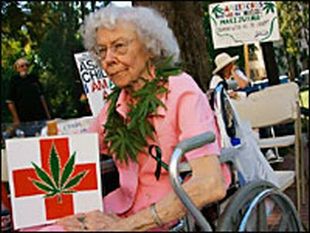General Discussion
Related: Editorials & Other Articles, Issue Forums, Alliance Forums, Region ForumsDay 35 Countdown for Humane Conditions: SHU prisoners in California are not allowed to call home.
Day 35 Countdown for Humane Conditions
http://prisonerhungerstrikesolidarity.wordpress.com/2013/08/11/day-35-countdown-for-humane-conditions/
Posted on August 11, 2013 by prisonerhungerstrikesolidarity
Some California prisoners got good news on Friday: the Federal Communications Commission agreed to limit how much companies can charge for phone calls made from behind bars.
But this welcome reform does not affect SHU prisoners. Why? Because SHU prisoners in California are not allowed to call home. Lack of family phone calls is one of the reasons why California’s SHU cells are characterized as solitary confinement – the harsh deprivation of family and social ties.
(some prisoners have been in solitary for 40 years)
Prisoners in the SHU are not even allowed to write letters to their loved ones, if their loved ones are also incarcerated. The letters they are allowed to write are copied and scrutinized by gang investigators for evidence of gang involvement. And gang investigators find “gang involvement” everywhere they look – even in the drawings of a five year old girl who sends her artwork to her daddy. Imagine a little girl getting her drawing back from the prison because it is considered gang-related. Gang investigators will even reach out to family members and friends who write to SHU prisoners, warning them that they face possible investigation themselves merely for corresponding with a SHU prisoner.
SHU prisoners in long-term solitary confinement value their family relationships above all else. So that is what SHU prisons try to destroy. Consider this: a mother with two sons in prisons (one in general population and one in SHU) cannot write to both. Why? Because she knows that gang investigators will link her sons to each other through her address, thereby jeopardizing the son in general population with gang validation and placement in SHU.
This is the meaning of cruel and unusual punishment. How long would you tolerate these sorts of attacks on you and your family? Would you be driven to hunger strike because of these and other cruelties?
CDCR has created the conditions that drive prisoners to desperation. Whether it be a lonely suicide in an isolation cell or a united peaceful protest, the message is clear: SHU prisoners have been pushed beyond the limit of what human beings should have to bear. It is horrifying to witness CDCR’s response to the current hunger strike: crank up the cruelty and let them die.
Today is Day 35.
On behalf of the Mediation Team,
Carol Strickman, Legal Services for Prisoners With Children, (510) 289-7225
Hunger Strike Mediation Team
Dr. Ronald Ahnen, California Prison Focus and St. Mary’s College of California
Barbara Becnel, Occupy4Prisoners.org
Dolores Canales, California Families to Abolish Solitary Confinement
Irene Huerta, California Families to Abolish Solitary Confinement
Laura Magnani, American Friends Service Committee
Marilyn McMahon, California Prison Focus
Carol Strickman, Legal Services for Prisoners With Children
Azadeh Zohrabi, Legal Services for Prisoners With Children
**********************************************************
Call Governor Jerry Brown
Phone: (916) 445-2841, (510) 289-0336, (510) 628-0202
Fax: (916) 558-3160
Suggested script: I’m calling in support of the prisoners on hunger strike. The governor has the power to stop the torture of solitary confinement. I urge the governor to compel the CDCR to enter into negotiations to end the strike. RIGHT NOW is their chance to enter into clear, honest negotiations with the strikers to end the torture.
annm4peace
(6,119 posts)California’s Continuing Prison Crisis
snip-
If California wants to avoid another legal battle over its overcrowded prisons, there are two things it can do right away.
First, it should establish a sentencing commission to bring consistency, proportionality and data-based assessments to its laws. Twenty-one states, the District of Columbia and the federal government already have such commissions, and they make a difference. In Virginia and North Carolina, both of which had prison overcrowding, sentencing commissions helped focus scarce resources on housing the most violent offenders, limiting prison growth without jeopardizing public safety.
Criminal justice reform advocates have unsuccessfully pushed for such a commission in California. If the state is to get away from its irrational and complicated sentencing, it needs a commission, and it needs to insulate it as much as possible from the political actors who have contributed so much to the state’s current crisis.
Second, the state must do more to help released prisoners get the re-entry and rehabilitation services that already exist across California. Inmates are often released with no warning to friends or family, with no money, no means of transportation and no clothes other than the jumpsuits on their backs. It is no wonder a 2012 report showed that 47 percent of California prisoners returned to prison within a year of their release, a significantly higher rate than the national average.
People coming out of prison need many things, but the critical ones are safe housing, drug treatment and job opportunities. Theoretically, the $2 billion being spent over the first two years of realignment was to provide more resources toward such re-entry and rehabilitation programs; in reality, much of that money has gone to county jails, which have seen their own overcrowding only get worse as they have absorbed thousands of inmates from state prisons. So far, counties have allocated an average of just 12 percent of their realignment funds to re-entry programs.
sabrina 1
(62,325 posts)in to stop this tragedy from happening. What a country, we have people on hunger strike in our Gulag in Guantanamo and more right here on US soil. And we dare to point fingers elsewhere.
Shame on this country for its ongoing, egregious violations of human rights at home and abroad.
Joe Shlabotnik
(5,604 posts)Warren DeMontague
(80,708 posts)Sure, I suppose you'd just let her go. ![]()
